Publications
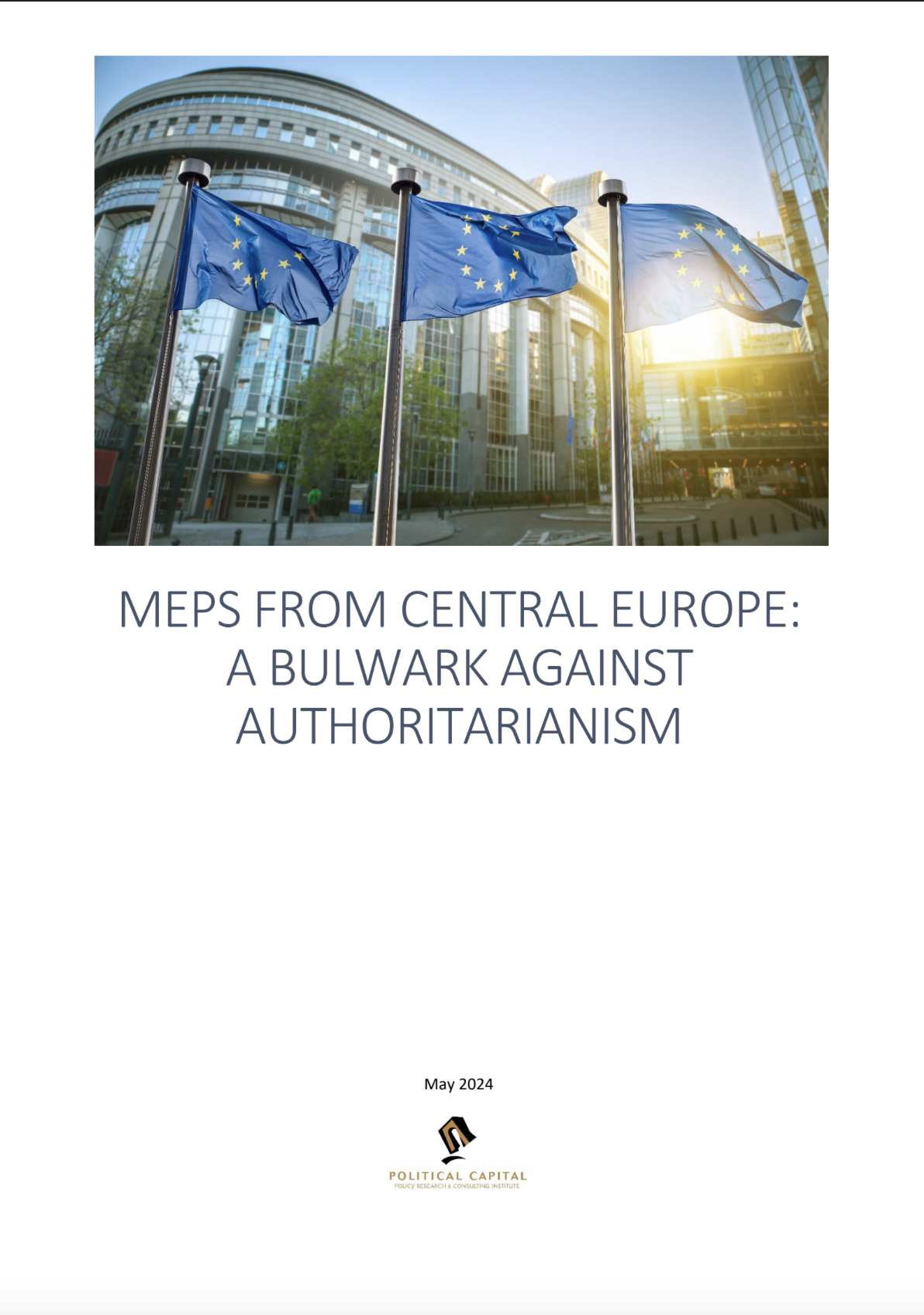
Information Resilience Program // Kristína Šefčíková, Prague Security Studies Institute, Political Capital / 4 Jun 2024
MEPs from Central Europe: A Bulwark Against Authoritarianism
As the Members of the European Parliament’s ninth term closed their books, PSSI teamed up with Political Capital and partners to track the views of incumbent MEPs from the V4, Austria, Bulgaria and Romania on authoritarian regimes. We used qualitative and quantitative methods to build an accurate picture of MEPs’ positions on authoritarian countries. PSSI contributed to the effort with an analysis of Czech MEPs.
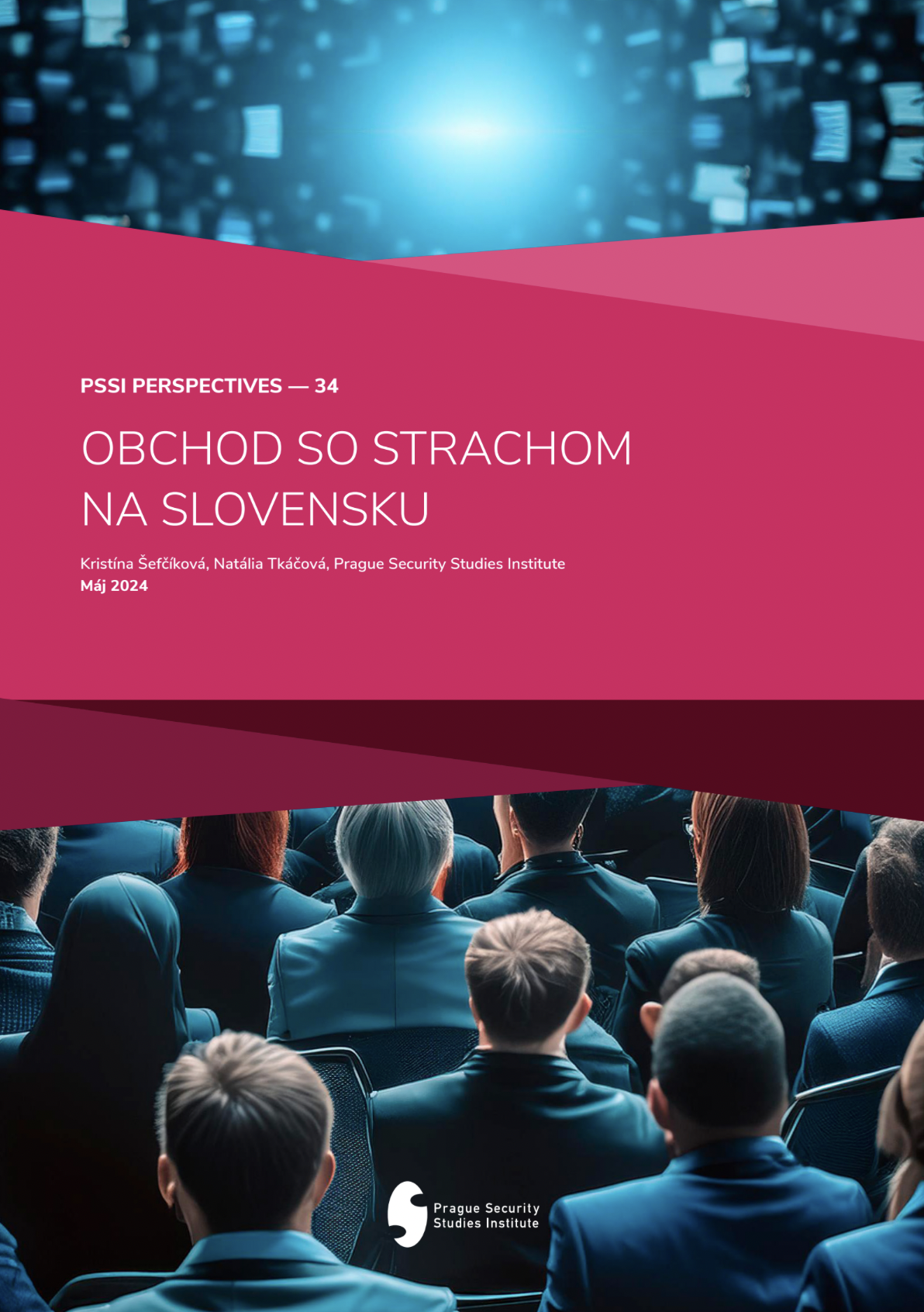
Information Resilience Program // Kristína Šefčíková, Natália Tkáčová, Prague Security Studies Institute / 31 May 2024
PSSI Perspective #34: Obchod so strachom na Slovensku
Slovenský informačný priestor je čoraz viac zaplavovaný dezinformáciami a manipuláciami. Veľkou motiváciou pre šírenie problematického obsahu môže byť vidina zisku. V tejto súvislosti sa často používa aj označenie obchod so strachom. Obchodníci so strachom sa vo svojej komunikácii spoliehajú na dezinformácie, ktoré v ľuďoch vyvolávajú silné emócie ako strach alebo nenávisť. Tieto praktiky využívajú ako skratku k čo najväčšej pozornosti – klikom –, a čo je hlavné, peniazom. Ich ciele sú ale často spojené s politickými ambíciami a túžbou po pozornosti.
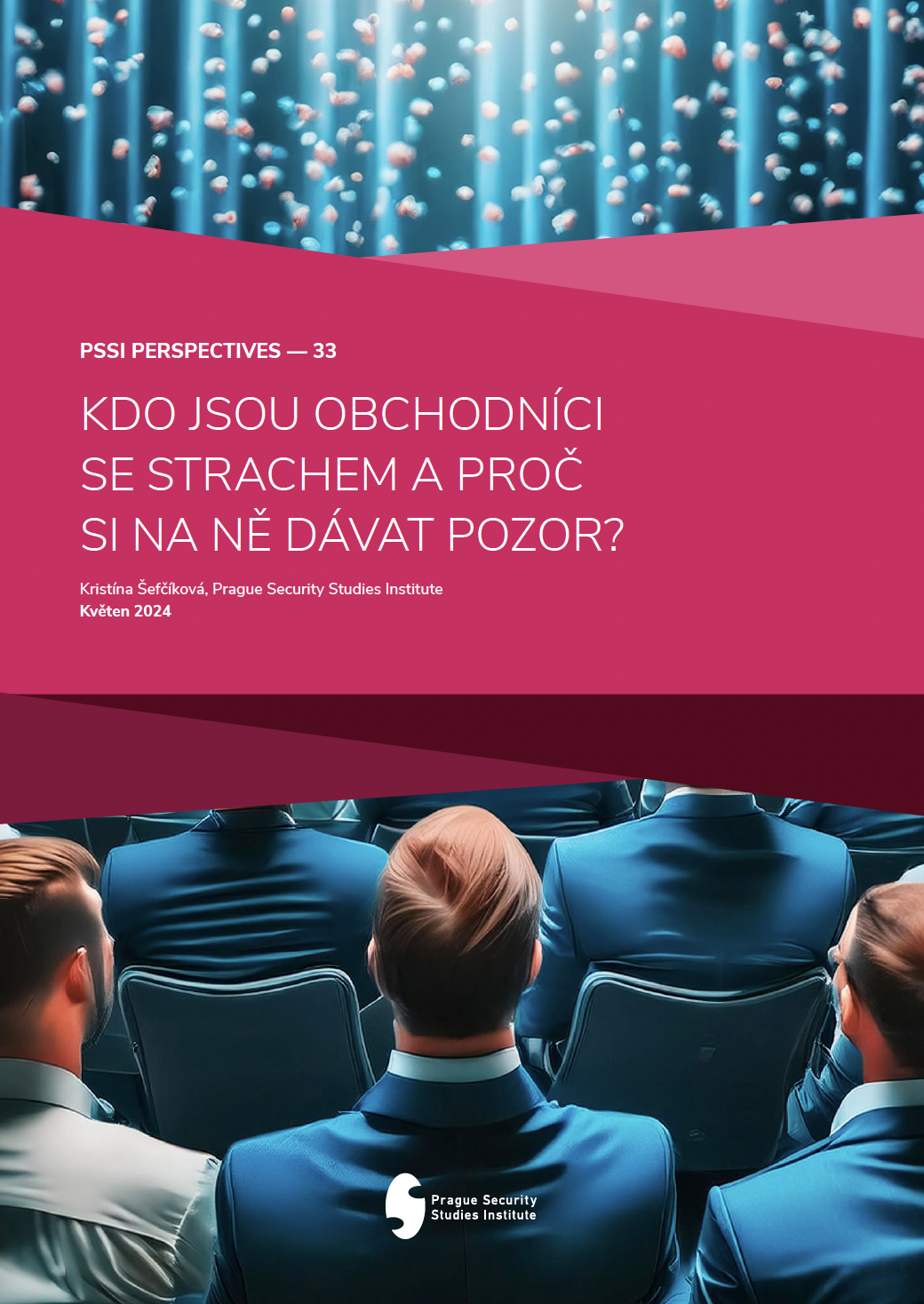
Information Resilience Program // Kristína Šefčíková, Prague Security Studies Institute / 30 May 2024
PSSI Perspective #33: Kdo jsou obchodníci se strachem a proč si na ně dávat pozor?
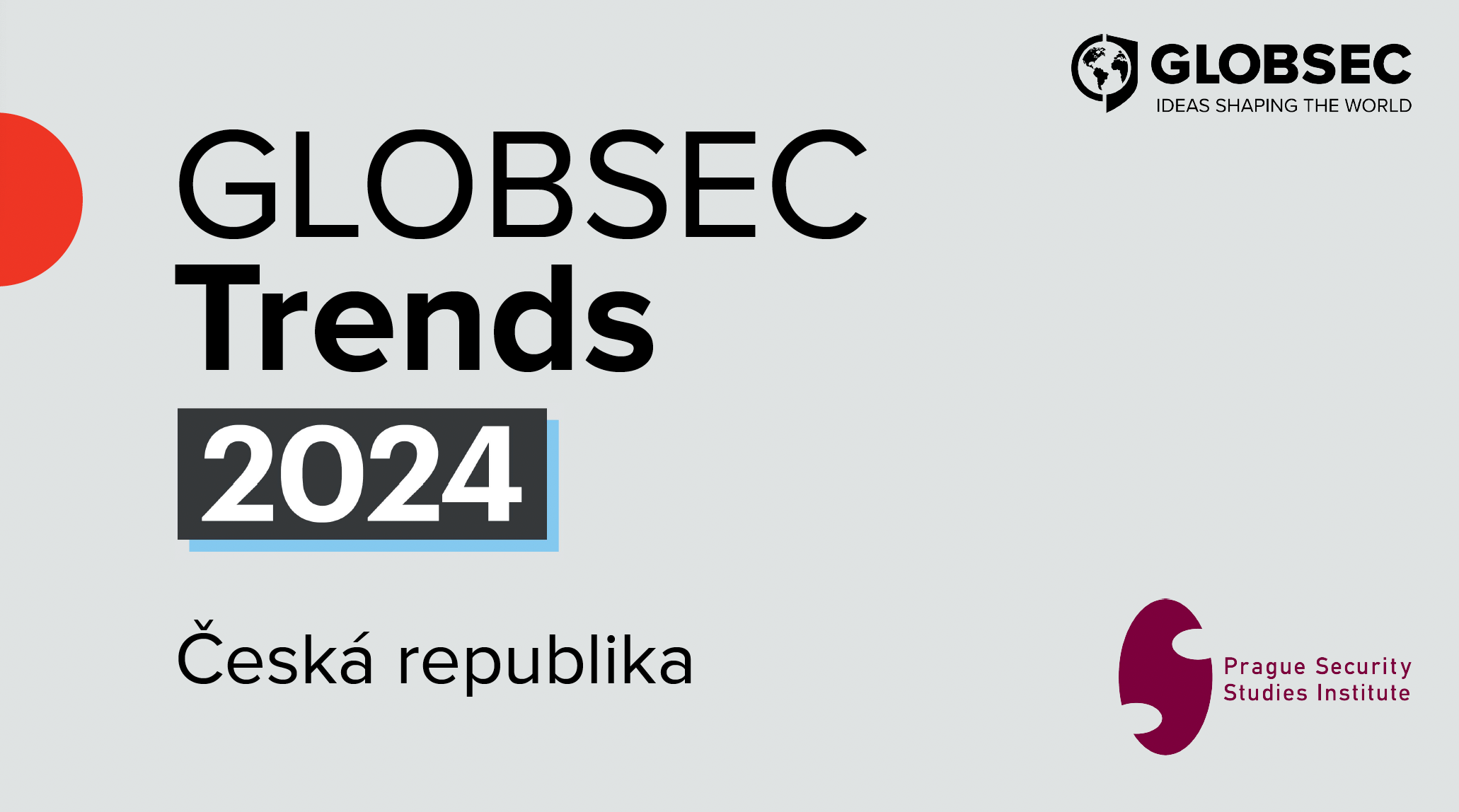
Information Resilience Program // / 10 May 2024
Globsec Trends 2024 Presentation
Projekt GLOBSEC Trends poskytuje výsledky rozsáhlého průzkumu veřejného mínění ve střední a východní Evropě. Účelem průzkumu je zmapovat kolektivní společenské postoje a pohledy na širokou škálu témat, zejména geopolitického charakteru, včetně Evropské unie a NATO, jakož i probíhající války na Ukrajině a vnímání demokracie.
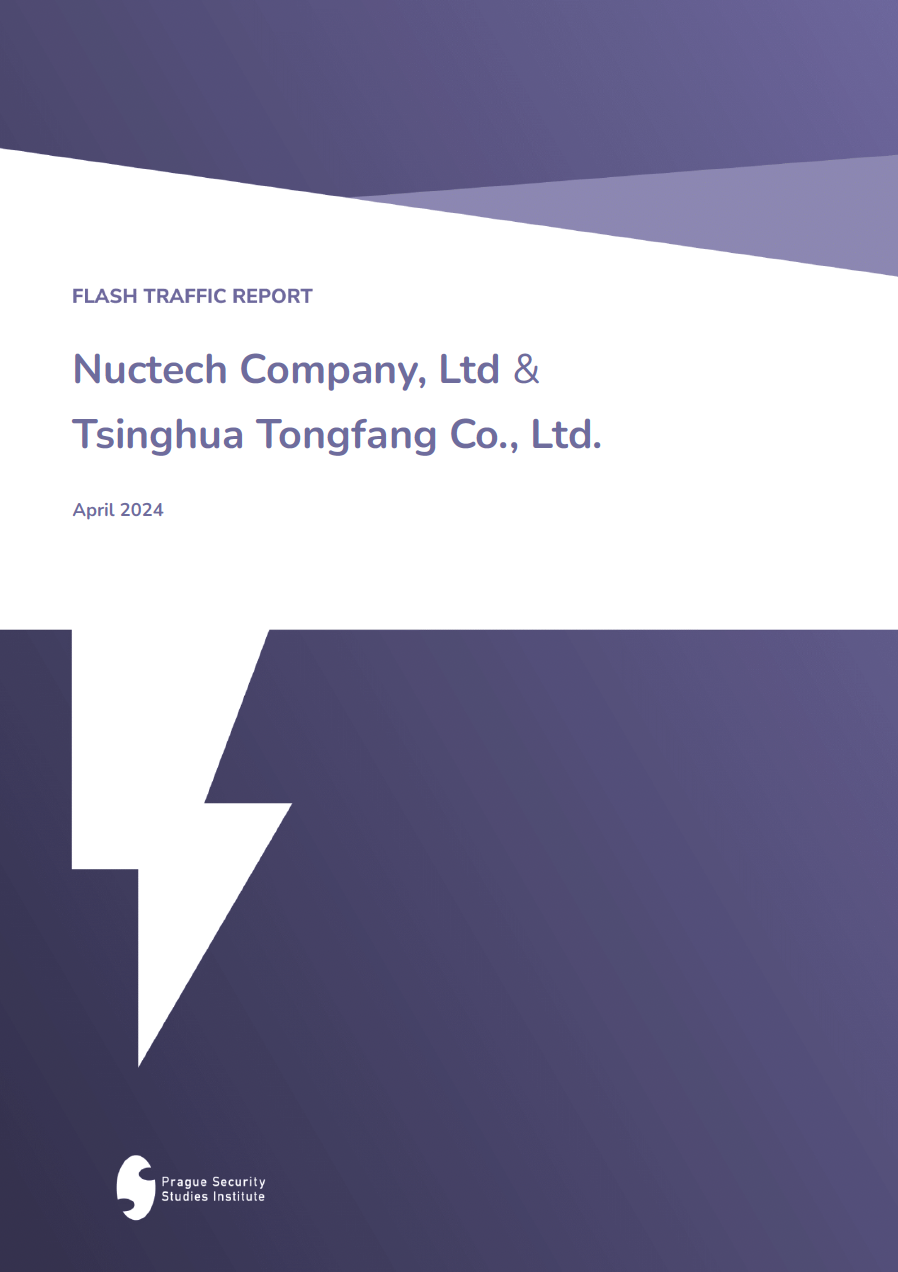
Economic & Financial Statecraft Program // / 30 Apr 2024
Flash Traffic Report: Nuctech Company, Ltd and Tsinghua Tongfang Co., Ltd.
Given the recent EU raid on the Warsaw and Rotterdam offices of the Chinese security equipment manufacturer Nuctech, PSSI has issued a Flash Traffic report recommending capital markets sanctions against its parent company, Tsinghua Tongfang (SS.600100). Download the Flash Traffic report below.
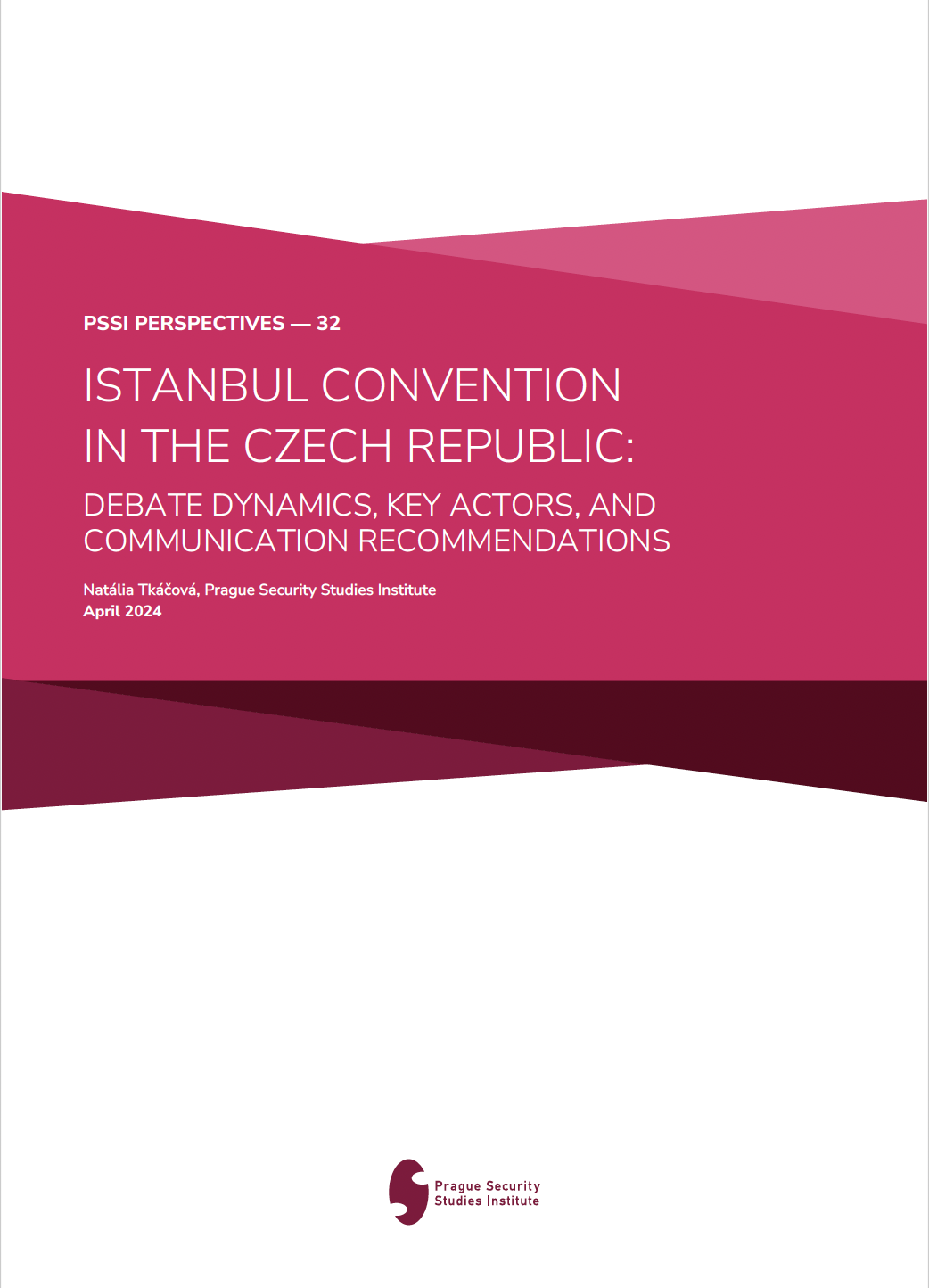
Information Resilience Program // Natália Tkáčová / 18 Apr 2024
Istanbul Convention in the Czech Republic: Debate Dynamics, Key Actors, and Communication Recommendations
This analysis seeks to identify key stakeholders involved in the public debate around the Istanbul Convention and its framing. The analytical report provides practical communication recommendations with the aim of fostering a more balanced public debate about the Istanbul Convention. The outputs are based on semi-structured expert interviews with the government's Human Rights Commissioner, a representative of the media, the non-governmental sector and a legal expert. The analysis is available in both English and Czech.
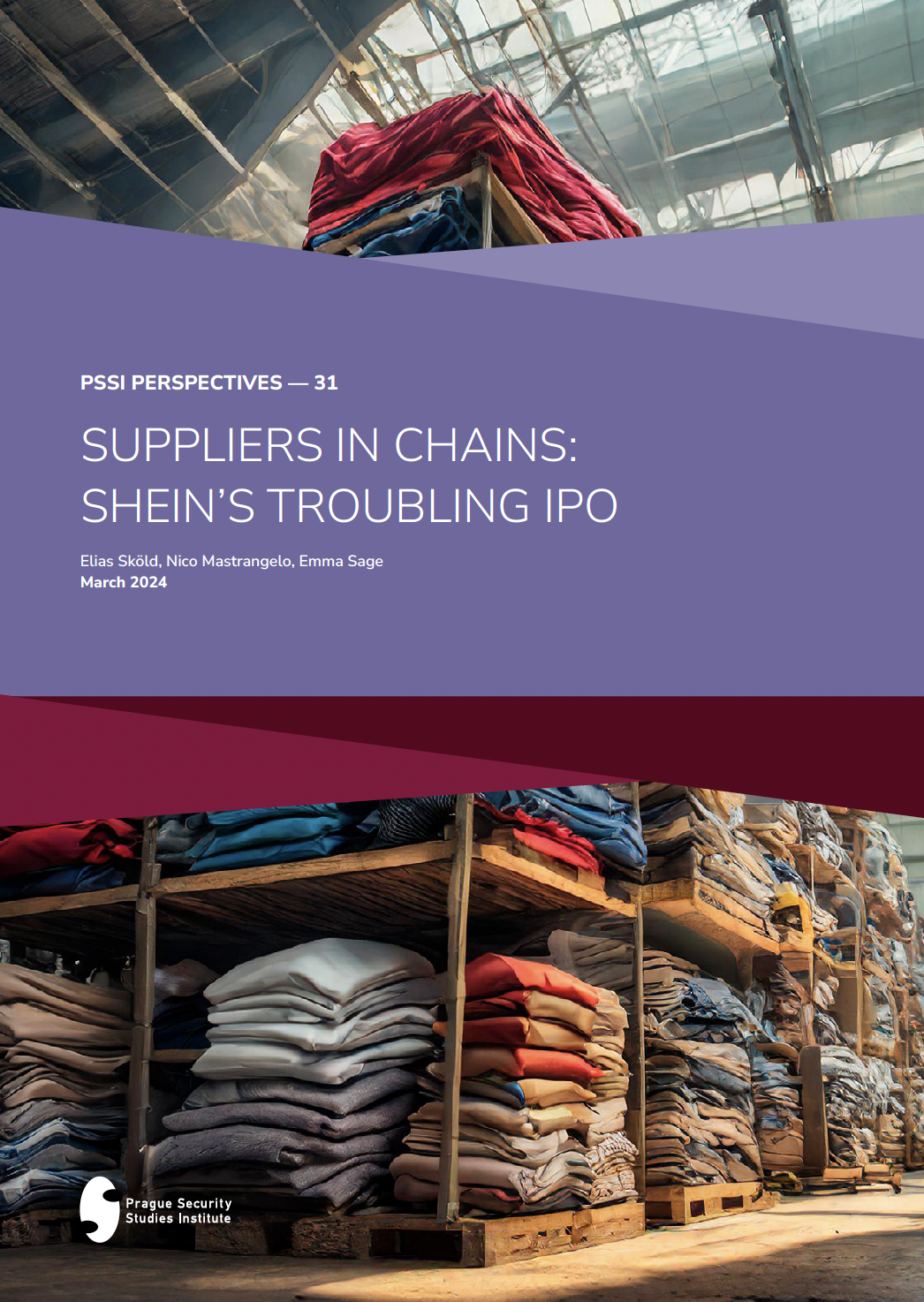
Economic & Financial Statecraft Program // Elias Sköld, Nico Mastrangelo, Emma Sage / 6 Mar 2024
Suppliers in Chains: SHEIN’s Troubling IPO
PSSI’s newest Perspective takes on the proposed IPO of SHEIN, the fast-fashion giant faced with a litany of allegations. We find that SHEIN has either concealed its practices or willfully misled consumers and lawmakers in the U.S. and EU regarding its record on human rights, workers' rights, environmental damage, consumer product toxicity levels, and customs regulations. It has been demonstrably and repeatedly linked to forced labor from the Xinjiang Province in China, faces a multitude of criminal allegations, and has demonstrated a repeated failure to protect workers and consumers.
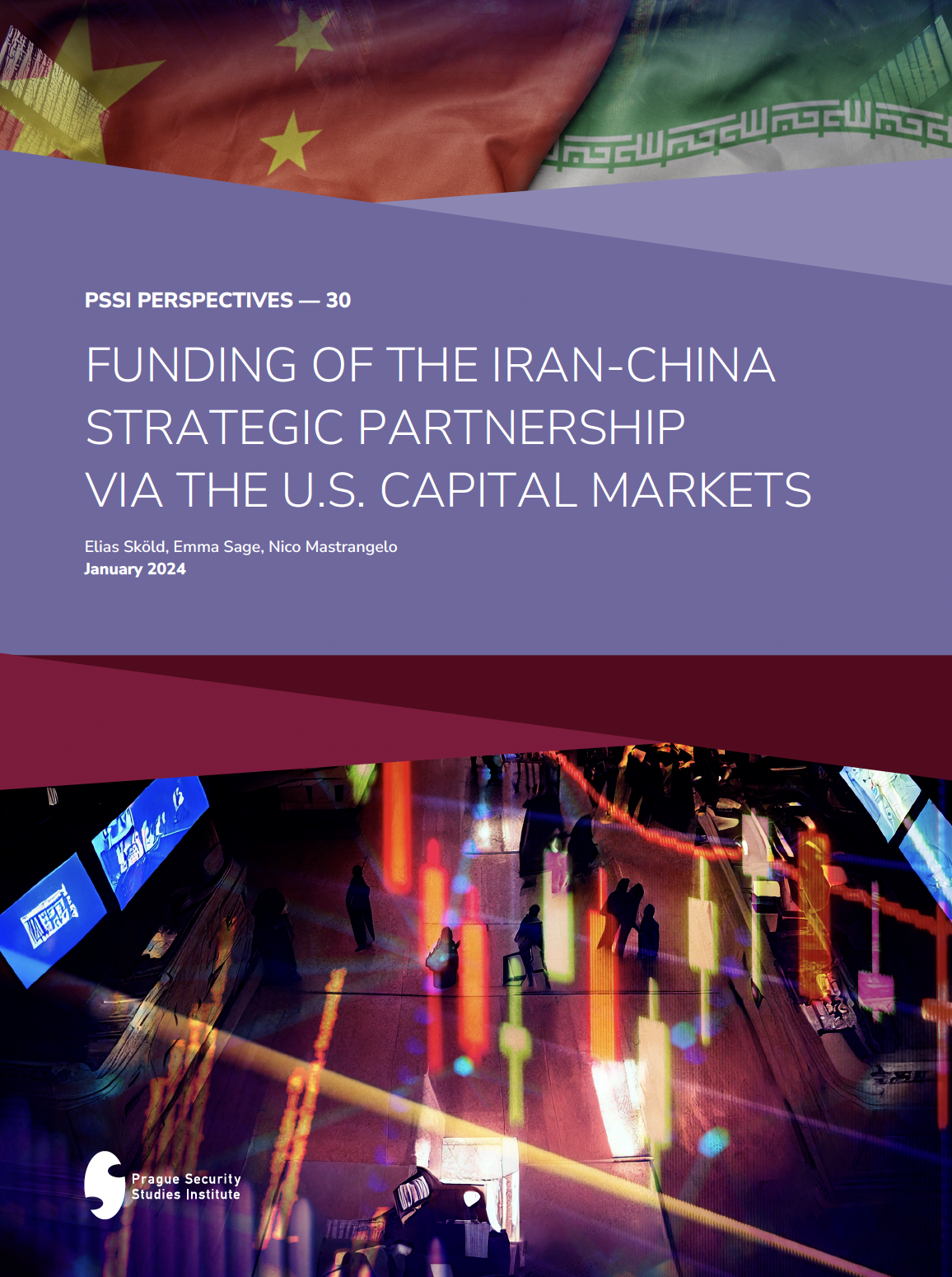
Economic & Financial Statecraft Program // Elias Sköld, Emma Sage, Nico Mastrangelo / 31 Jan 2024
Funding of the Iran-China Strategic Partnership via the U.S. Capital Markets
PSSI's research reveals a regulatory crisis in global finance: American investment funds have been funneled into Chinese companies which bolster and support Iran’s rogue activities. This report highlights 40 such companies, which cumulatively enjoy U.S.-based investments valued at over $6 billion. This alarming relationship, driven by major U.S. asset managers like Vanguard, State Street, and Dimensional, demonstrates how Western funds are inadvertently supporting Iran's role as a principal state sponsor of terror.
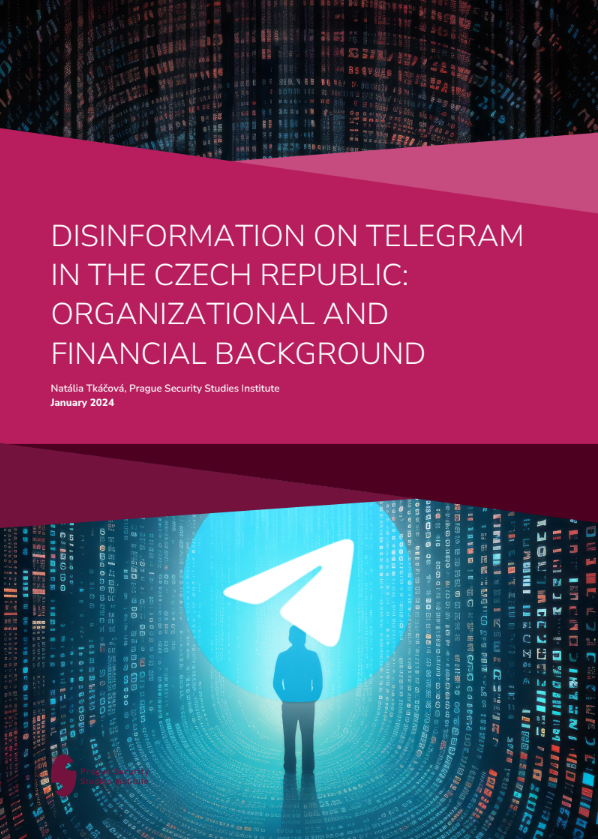
Information Resilience Program // Natália Tkáčová, Prague Security Studies Institute / 23 Jan 2024
Disinformation on Telegram in the Czech Republic: Organizational and Financial Background
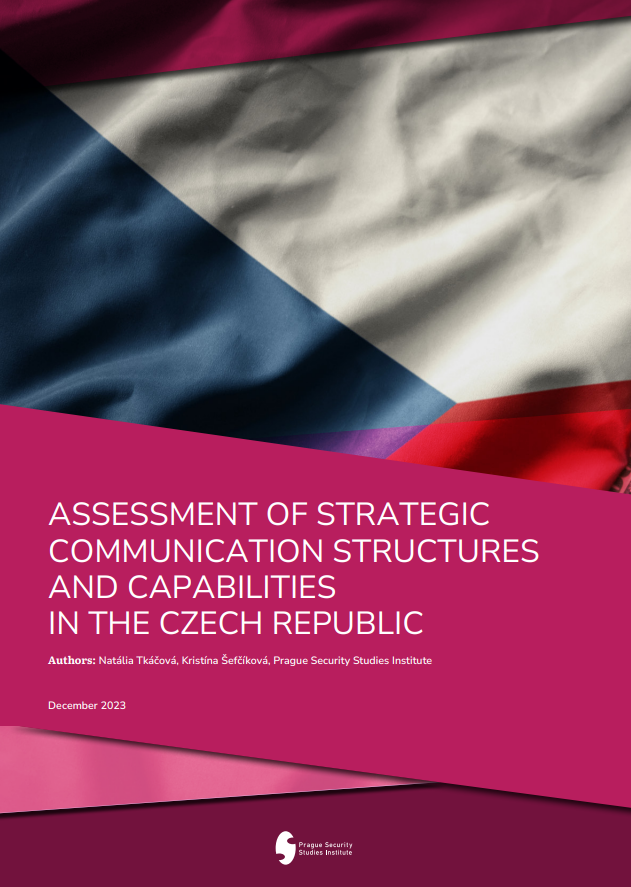
Information Resilience Program // Natália Tkáčová, Kristína Šefčíková / 8 Dec 2023
Assessment of Strategic Communication Structures and Capabilities in the Czech Republic
The primary goals of strategic communication comprise from both an informative role for domestic and international audiences regarding the nation’s values, identity, capabilities, and actions, as well as a strategic security aspect to monitor, analyze, and respond to international political developments to enhance the nation’s position and avert potentially destabilizing actions from adversaries.